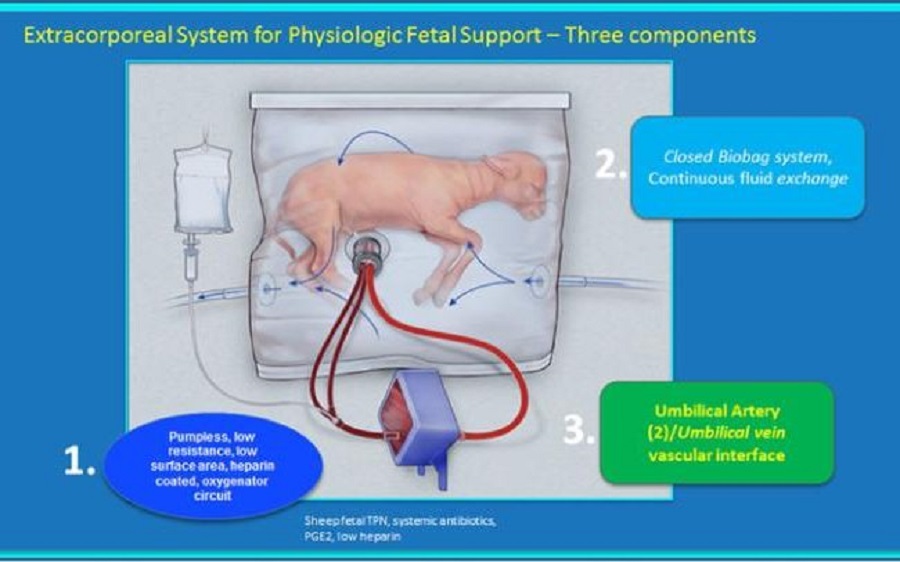Scientist developed an artificial placenta that could help keeping premature babies alive. The Biobag was developed by a group of scientists at the Children’s Hospital of Philadelphia. The revolutionary system mimics the conditions in the womb and is expected to be tested in humans in a couple of years.
The future for premature babies is finally here!
According to the World Health Organization, 15 million babies are born early every year. About one million die due to difficulties. Well, a new device called te Biobag seeks to serve as a bridge from the womb to the outside world for those babies.
Dr Alan Flake is the leader of this study. The fetal surgeon said: “It’s complete science fiction to think that you can take an embryo and get it through the early developmental process and put it on our machine without the mother being the critical element there.”

The Biobag is kind of an external womb
Dr Flake and his team developed for three years an external bag. It provides fetus with a uterus-like environment allowing them to develop. In the Biobag the infant’s blood circulates through the umbilical cord into an external gas-exchange machine which substitutes the mother’s placenta.
The aim of the research is to provide an environment in which premature babies could develop. This explains why the Biobag contains the same vital parts.
First, a plastic bag that encloses the fetus just like the uterus, also an electrolyte solution similar to the amniotic fluid in the uterus, and a mechanism for the blood circulation and exchange o carbon dioxide for oxygen.
The system can support growth and organ maturation just for a few weeks. This is why is great for premature babies who don’t meet the birth date.
Dr Flake also said, “This system is potentially far superior to what hospitals can currently do for a 23-week-old baby born at the cusp of viability. This could establish a new standard of care for this subset of extremely premature infants.”

Fiction meets reality
The system was tested in six pre-term lambs for a month. The animals showed a normal development in the device. They “breathed” and learned to swallow, they also opened their eyes and grew wool.
The researchers also observed a proper development of organs and nerves functioning just right. To test their organs, some of the sheep were humanely killed, while others were allowed to survive.
Dr Flake said, “They appear to have normal development in all respects.” It’s expected to be tested in humans in a three years lapse.
This might be the future of not only premature babies but maybe for pregnancies as well. It might seem a little too ‘New World’ but ultimately is fiction meeting reality

Source: The Verge



Loading…